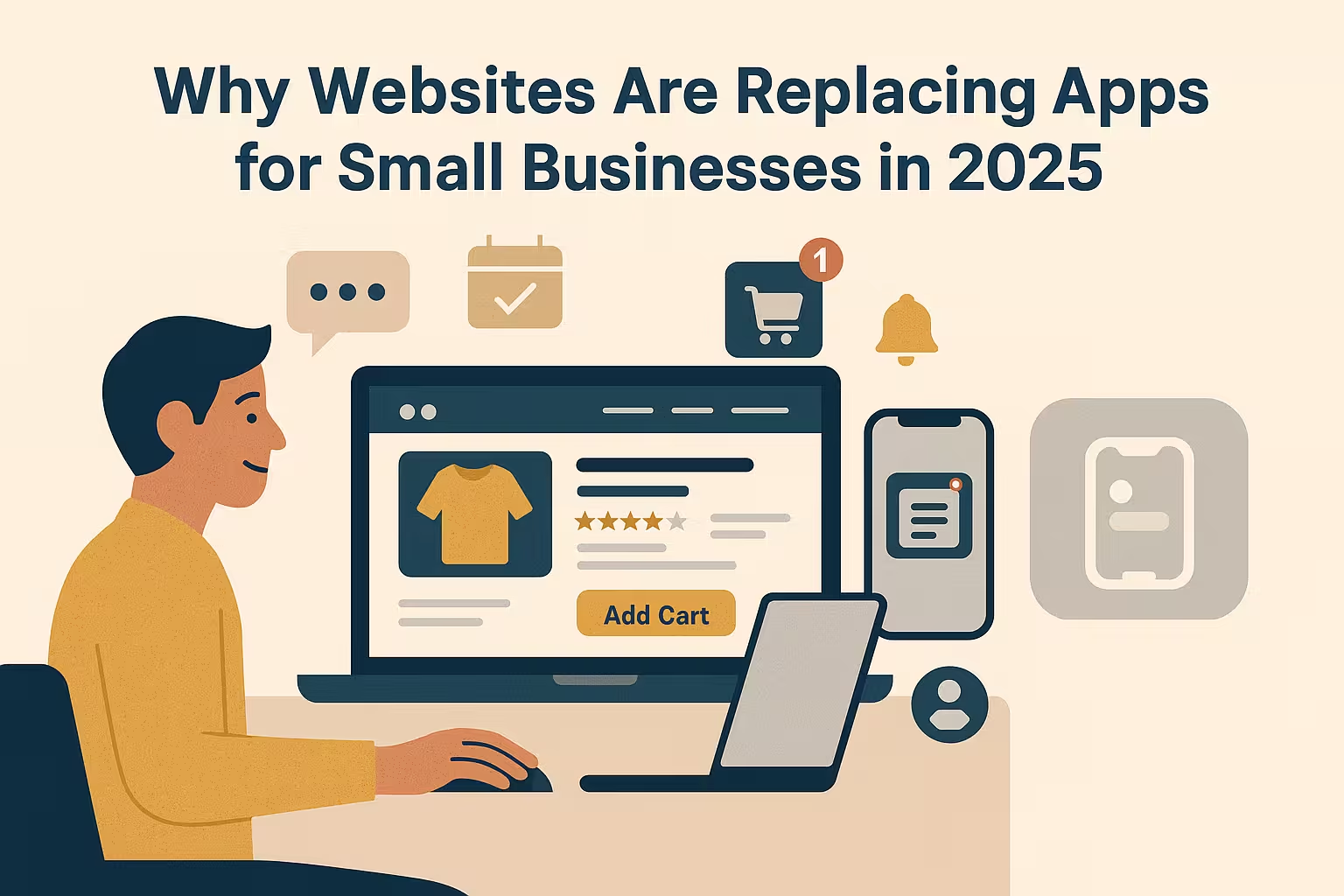Websites vs Apps
Why Websites are able to Replacing Apps for Small Businesses
There was a time—not long ago—when it felt like every business needed an app. It was a kind of rite of passage: launch the website, grow a little, and then… “We need an app.”
That mindset has been changing fast. We’ve seen it again and again: smart small business owners are realizing they don’t need the hassle, cost, or maintenance of an app. What they actually need is a better website.
Websites Have Leveled Up
We’re not talking about the clunky brochure-style websites of the early 2000s. Today’s websites are fast, interactive, mobile-first, and packed with features that used to be “app only.” In fact, the gap between websites and apps has all but disappeared for most use cases.
Thanks to technologies like Progressive Web Apps (PWAs), responsive design, and smarter browser capabilities, a well-built site can now deliver an experience that feels just like an app—but without requiring your customers to download anything.
Native-Like Experience, Without the App Store Drama
Let’s be honest—nobody wants to download another app just to schedule a haircut or check a restaurant menu.
Modern websites can do all of this and more:
All of this is possible with just a browser. No App Store. No Play Store. No waiting for approval. No separate versions to maintain.
Why the App Model is Fading for Small Business
Here’s why apps are becoming the less attractive option, especially for small teams and local businesses:
1. High Development Costs
Building a custom app—especially for both iOS and Android—can cost $25,000 to $100,000+, depending on features. And that doesn’t include updates, bug fixes, or maintenance.
2. Platform Fragmentation
You can’t build just one app. You have to think about iPhones, Android devices, tablets, and sometimes even smart TVs or watches. That means separate designs, separate codebases, and often, separate budgets.
3. App Fatigue
Users are tired of downloading apps they only use once or twice. The bar is higher now. If your app isn’t offering something truly unique, it won’t stay installed.
4. SEO Blackout
Apps don’t show up in Google search results. Your website does. If you rely on organic traffic, an app gives you zero visibility.
What Today’s Websites Can Actually Do
You might be surprised by just how much functionality you can pack into a modern website. With the right strategy and tools, a website can:
Yes—your website can send push notifications, just like an app.
This kind of power used to require full app development. Now, it’s all possible within a single website—built right and maintained well.
One URL to Rule Them All
There’s something beautiful about simplicity. A well-built website gives you one address—a single URL that works everywhere:
It’s the simplest way to meet your customer where they are.
Compare that to the hoops users jump through to download an app:
So… When Do You Still Need an App?
Apps aren’t dead—but they’re not essential for most small businesses. You may still want a native app if you need:
But for booking, shopping, customer portals, internal tools, dashboards, directories, events, content, loyalty, and subscriptions—the modern website wins. Many more times than you think.
How We Help at inputidea
We specialize in building websites that act like apps—but skip the cost and complexity. Our sites are:
And we don’t stop at the frontend. We handle automation, infrastructure, back-end logic, and long-term management—so you can focus on what you do best.
The Small Business Advantage: Agility Over Bloat
The most successful small businesses aren’t chasing trends. They’re simplifying, automating, and focusing on delivering value through the most accessible digital tool we have: the website.
You don’t need to build a mini Facebook or launch the next Uber. You just need something that works, looks great, and connects the dots between you and your customers.
That’s exactly what a smart, modern website delivers—and that’s what we build.
In the end…
Apps are expensive, complex, and often unnecessary.
Websites can be faster, leaner, and more powerful than ever.
Your best app might already be your website.



